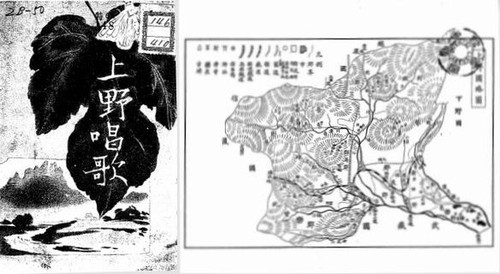老人の寝言:世界人口が70億人を突破して日本はどこに向かうのか
2011/11/2
昨日も穏やかな晴天。11月としては暖かい天気。日光浴をかねてタマリュウの改植。グランドカバーも良く目に付く部分はそれなりに手入れをしようと思っている。花木を植えても、一斉に同じ色で作とついつい綺麗!と感じる。そこに雑草や雑木があるとうっとうしく感じる。好ましいと思うものS(シグナル)と、好ましからざるものN(ノイズ)の比S/Nが影響しているようだ。TVの画像ではS/N=40dbが実用限界だったと思う。人間の審美眼はどうなっているのか。S/N比を上げるために雑草を引き抜くのでは際限ないエネルギーが必要になる。上手に手抜きをする方法はあるのか。暖かいのか蚊が元気良く飛び回っている。
2011/11/1の天気
| TAVE= | 15.3 |
| TMAX= | 21.7 |
| TMIN= | 9.6 |
| DIFF= | 12.1 |
| WMAX= | 3.8 |
| SUNS= | 10.1 |
| RAIN= | 0 |
最低気温(℃) 8.2 06:31
最高気温(℃) 22.1 14:11
老人の寝言:世界人口が70億人を突破して日本はどこに向かうのか
2011/10/31国連は世界人口が70億人を突破したと公表したようだ。2011年WIKIPEDIAによると「2011年現在193か国」とある。この世界人口70億人は瞬時値であり、増大傾向の通過値に過ぎない。国連が世界人口70億人を公表するにしても色々な意味があるだろう。そこで、国連サイトからこの世界人口70億人突破の記事を探して見つけたのが以下の記事である。世界の70億人に宛てたメッセージとなると、その表現一つにも細かな配慮が必要なようだ。冒頭の一行は国連総長が世界のリーダー達に向けたメッセージととれるのではないか。世界のリーダー達よ世界の困難な問題解決に挑戦せよと読める。
UN NEWS CENTREは、「As world passes 7 billion milestone, UN urges action to meet key challenges;http://www.un.org/apps/news/story.asp?NewsID=40257&Cr=population&Cr1=(31 October 2011)」というタイトルで、以下の通り報じた。
*********************************************
「31 October 2011 --
Top United Nations officials today marked the global population reaching 7 billion with a call to action to world leaders to meet the challenges that a growing population poses, from ensuring adequate food and clean water to guaranteeing equal access to security and justice.
“Today, we welcome baby 7 billion. In doing so we must recognize our moral and pragmatic obligation to do the right thing for him, or for her,” Secretary-General Ban Ki-moon said at a press event at UN Headquarters to mark the milestone.
Mr. Ban noted that the world’s population reached 6 billion in 1998, only 13 years ago, and it is expected to grow to 9 billion by the middle of this century, or even a few years earlier -- by 2043.
What kind of world has baby 7 billion been born into? What kind of world do we want for our children in the future?
“But today -- this Day of 7 Billion -- is not about one newborn, or even one generation,” he stated. “This is a day about our entire human family.”
The world today is one of “terrible contradictions,” said Mr. Ban, noting that there is plenty of food but 1 billion people go hungry; lavish lifestyles for a few, but poverty for too many others; huge advances in medicine while mothers die everyday in childbirth; and billions spent on weapons to kill people instead of keeping them safe.
“What kind of world has baby 7 billion been born into? What kind of world do we want for our children in the future?” he asked.
“I am one of 7 billion. You are also one of 7 billion. Together, we can be 7 billion strong -- by working in solidarity for a better world for all,” the Secretary-General said.
In an op-ed published in The International Herald Tribune, Mr. Ban said that as the world population passes 7 billion, “alarm bells are ringing.” He noted that the meeting later this week in France of the Group of 20 leading and emerging economies (G-20) is taking place against the backdrop of growing economic uncertainty and mounting inequality.
“In Cannes, leaders should agree to a concrete action plan that advances the well-being of all nations and people, not just the wealthiest and most powerful,” he stated.
The President of the General Assembly, Nassir Abdulaziz Al-Nasser, said today’s milestone is a reminder of how the world’s poorest -- the so-called ‘bottom billion’ -- are rendered vulnerable with little or no access to basic needs.
“Seven billion people face, almost on a daily basis -- with varying degrees of severity -- the consequences of environmental challenges, increasing poverty, inequity, wars and economic instability,” he told the event.
“But with each of these challenges comes an opportunity -- 7 billion opportunities in fact,” he added, noting that these opportunities can be harnessed to reach global anti-poverty targets, to invest in youth and women, and to re-think the approach to sustainable development.
The Executive Director of the UN Population Fund (UNFPA) underscored some of the challenges in an expanding global community, including in promoting the rights and health of 7 billion women, men and children.
“We must ensure that, in areas of the world where population is growing fast, we raise the status of women and young girls to be able to access education and make choices for themselves,” Babatunde Osotimehin said at the gathering.
“We also owe it to the 215 million women worldwide who require family planning and are not getting it to make it available,” he said, adding it is also necessary to ensure safe pregnancy and delivery for every woman that wants to give birth.
At the same time, he highlighted the need to give ageing populations in many parts of the world a life of dignity, and to tackle the rapid urbanization and migration which many countries have to face.
The UN human rights chief also marked the occasion, stating that the 7 billionth child is, by virtue of her or his birth, a permanent holder of rights, with an “irrevocable” claim to freedom.
“But she or he will also be born into a world where some people, given the chance, will trample on those rights and freedoms in the name of state security, or economic policy, or group chauvinism,” High Commissioner for Human Rights Navi Pillay said in a statement.
“If she was born a girl, she will have fewer choices. If born in the developing world, she or he will have fewer opportunities. If born a descendant of Africans in a non-African country, or as an indigenous person, member of a religious minority, or as a Roma, she or he is likely to face discrimination and marginalization, with a childhood rife with vulnerability, and a future adult life hedged in by exclusion.
“But he or she has also been born at a time of great hope,” Ms. Pillay added, noting that the demonstrations and mobilizations of civil society seen in 2011 in a sense “provide a birthday celebration for the 7 billionth person on this planet, and also serve as a warning to those who might be inclined to deprive this child, like many others, of his or her birthrights.”」
*********************************************
「国際連合加盟国;http://ja.wikipedia.org/wiki/%E5%9B%BD%E9%9A%9B%E9%80%A3%E5%90%88%E5%8A%A0%E7%9B%9F%E5%9B%BDurl;(最終更新 2011年9月24日 (土) 05:38 )」『フリー百科事典 ウィキペディア日本語版』(http://ja.wikipedia.org/)。の記事に「国際連合加盟国(こくさいれんごうかめいこく)は、2011年現在193か国である。原則として国際連合に加盟できるのは主権を持った国家だけである。国連憲章第2章第4条[1]によると、「国際連合加盟国となることの承認は、安全保障理事会の勧告に基いて総会の決定によって行われる。」と定められている。 国際連合安全保障理事会と総会の承認が得られなければ加盟できないために主権を持っている国であっても国際的に認知がなされていなかったり、特定の加盟国からの反対があると加盟できない。現在のところすべての加盟国が主権国家である。」とある。
2011/11/1ラジオの国会中継を聞きながら仕事をした。TPPの議論で首相の答弁も本音がどこにあるのかさっぱり分からない。農業政策も矛盾だらけ。そのままTPP交渉に突っ込むのか。覚悟云々と大見得を切ったが国民道連れの玉砕では困る。それにしても、日本の国会に格調の高さを余り感じなかった。余りにも内向きだったり、禅問答でも困る。
世界人口が70億人というニュースを聞いて先ず思い出したのが、食料をどのように確保するかである。上記国連ニュースで、「The world today is one of “terrible contradictions,” said Mr. Ban, noting that there is plenty of food but 1 billion people go hungry; lavish lifestyles for a few, but poverty for too many others; huge advances in medicine while mothers die everyday in childbirth; and billions spent on weapons to kill people instead of keeping them safe.」と述べている。日本が世界に目を向けるとまだまだやることがあるように思う。
食糧援助は被援助側の自立意欲を奪い、益々被援助側を不安定な立場にさせるという指摘もあったと思う。国際市場で食糧が動くのも余剰があるから可能なのだろう。通貨が不安定になり、食糧生産が不安定になると食糧への投機が始まる。福島原発事故で、放射能米が懸念されて、米価が例年以上に高値になっているのも気がかりだ。ともかく世界人口が70億人となった事実が日本にとりどんな意味を持つかをしっかり考えたい。ともかく、終戦後の食糧不足を体験した世代にとっては、日々安心して飯が食えるだけでもありがたいという思いがある。
 |
| |x
|x
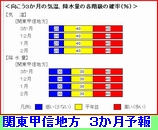
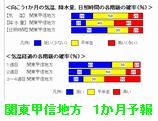

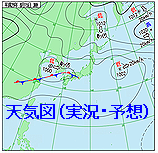
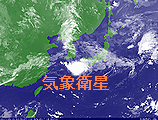
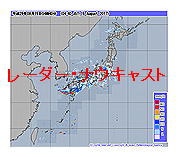













































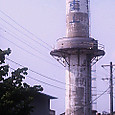
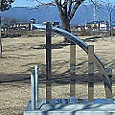





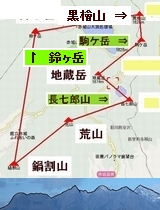

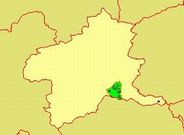















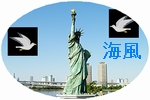
























 | 「蚕の蛾の産卵イメージ」=ローテク実験ビデオ(DL=画像をクリック);
| 「蚕の蛾の産卵イメージ」=ローテク実験ビデオ(DL=画像をクリック); 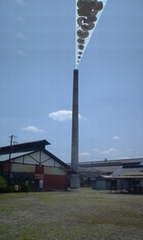 | ローテク実験ビデオ(DL=画像をクリック);
| ローテク実験ビデオ(DL=画像をクリック); 

